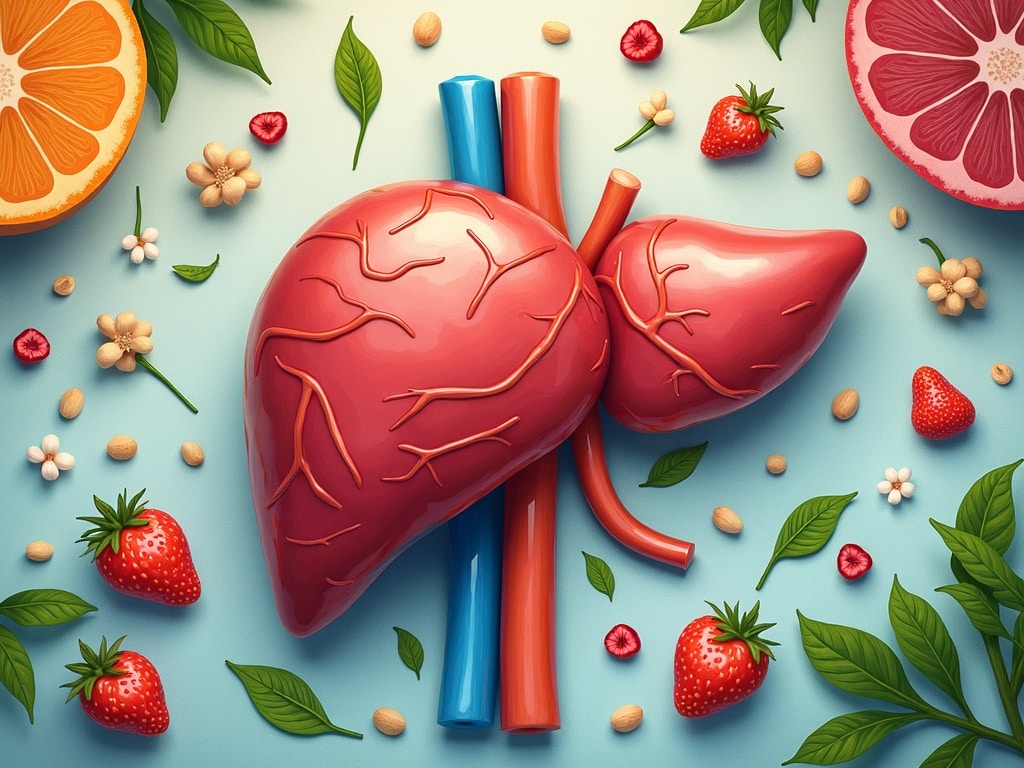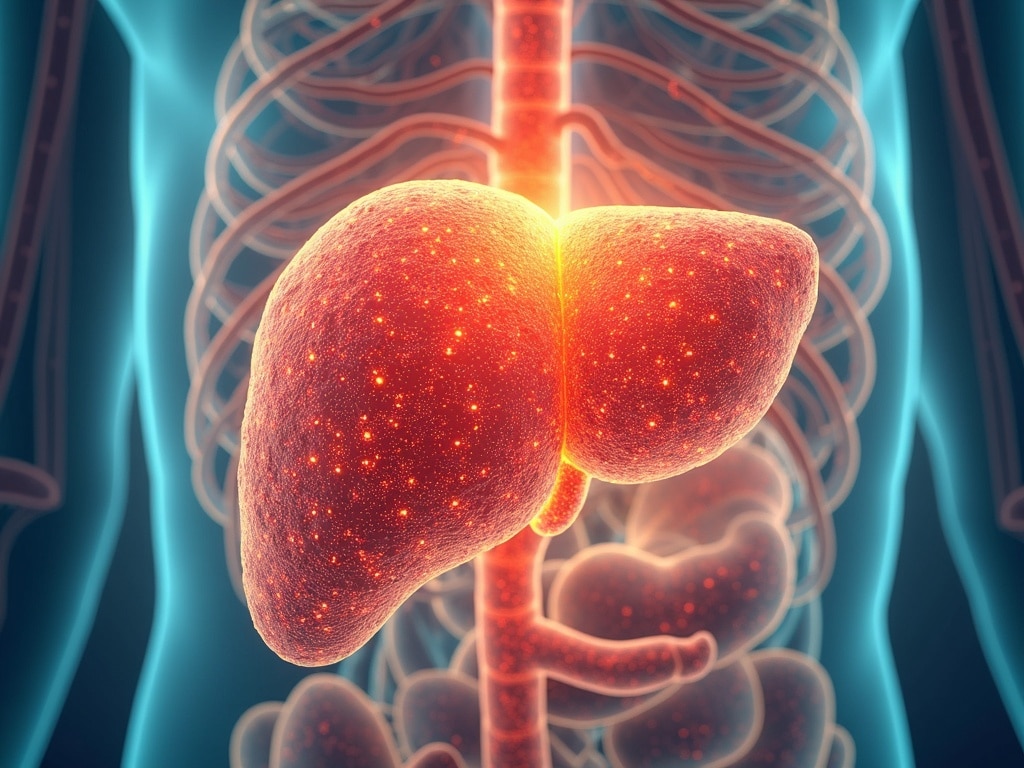Natural Ways to Support Liver Function: Your Body's Unsung Hero
Is your liver silently screaming for help? Often overlooked, this powerhouse organ tirelessly filters toxins, processes nutrients, and keeps your body humming. But modern life – with its processed foods, environmental pollutants, and daily stresses – can overburden your liver. The good news? You can actively support its function through natural, sustainable lifestyle choices.
Understanding the Liver's Role
Before diving into solutions, let’s appreciate the liver's monumental workload. This remarkable organ performs over 500 vital functions, including:
- Detoxification: Neutralizing harmful substances, from alcohol to medications.
- Metabolism: Processing fats, carbohydrates, and proteins from food.
- Nutrient Storage: Storing essential vitamins and minerals.
- Bile Production: Creating bile, which is crucial for fat digestion and absorption.
- Blood Clotting: Producing proteins necessary for blood coagulation.
When the liver is stressed, these functions can become compromised, leading to fatigue, digestive issues, skin problems, and even more serious health concerns.
The Signs of a Stressed Liver
While a definitive diagnosis requires a doctor's evaluation, certain symptoms can suggest your liver needs some TLC:
- Persistent fatigue and low energy
- Digestive issues like bloating, gas, or constipation
- Skin problems such as acne, eczema, or psoriasis
- Unexplained weight gain or difficulty losing weight
- Dark urine or pale stools
- Yellowing of the skin or eyes (jaundice)
- Pain in the upper right abdomen
If you experience several of these symptoms, it's essential to consult with a healthcare professional to rule out any underlying liver conditions.
Dietary Strategies for Liver Support
The food you eat plays a pivotal role in liver health. Here are key dietary strategies:
Embrace Liver-Loving Foods
Load up on foods known to support liver function:
- Garlic and Onions: These contain sulfur compounds that aid in detoxification.
- Cruciferous Vegetables (broccoli, cauliflower, Brussels sprouts): These veggies boost glutathione production, a powerful antioxidant crucial for liver detoxification.
- Leafy Green Vegetables (spinach, kale, collard greens): Provide chlorophyll, which helps cleanse the blood and liver.
- Beets: Contain betaine, a compound that supports bile flow and liver function.
- Citrus Fruits (lemons, limes, grapefruits): Rich in vitamin C and antioxidants, these fruits help stimulate liver enzymes.
- Avocados: Provide healthy fats and glutathione precursors, supporting liver cleansing.
- Walnuts: Contain high levels of L-arginine, an amino acid that helps the liver detoxify ammonia.
Limit Liver-Taxing Foods
Minimize or eliminate foods that can burden your liver:
- Processed Foods: Often loaded with unhealthy fats, sugar, and artificial additives.
- Sugary Drinks: High fructose corn syrup can contribute to fatty liver disease.
- Excessive Alcohol: A major strain on the liver; moderation is key.
- Unhealthy Fats (fried foods, trans fats): Difficult to process and can contribute to inflammation.
- Refined Carbohydrates (white bread, pasta): Can lead to insulin resistance and fatty liver.
Hydrate, Hydrate, Hydrate
Water is essential for flushing out toxins and keeping your liver functioning optimally. Aim for at least eight glasses of water a day. Consider adding lemon or cucumber slices for extra detoxification benefits.
Supplements That May Offer Support
While a healthy diet should be your primary focus, certain supplements may provide additional liver support. *Always consult with a healthcare professional before starting any new supplements.*
- Milk Thistle: Contains silymarin, a powerful antioxidant and anti-inflammatory compound that protects liver cells.
- Turmeric: Contains curcumin, which has antioxidant and anti-inflammatory properties that can benefit liver health.
- Artichoke Extract: May help stimulate bile production and improve liver function.
- Dandelion Root: A traditional herb used to support liver detoxification and bile flow.
- N-Acetyl Cysteine (NAC): A precursor to glutathione, a powerful antioxidant that protects the liver.

Lifestyle Habits for a Healthy Liver
Beyond diet, certain lifestyle choices can significantly impact liver health:
Prioritize Sleep
Sleep is crucial for liver regeneration and detoxification. Aim for 7-8 hours of quality sleep each night. A consistent sleep schedule can work wonders.
Manage Stress
Chronic stress can negatively impact liver function. Practice stress-reducing activities like yoga, meditation, or spending time in nature.
Exercise Regularly
Regular physical activity helps improve liver function, reduce inflammation, and maintain a healthy weight. Aim for at least 30 minutes of moderate-intensity exercise most days of the week.
Avoid Exposure to Toxins
Minimize exposure to environmental toxins such as pesticides, herbicides, and household chemicals. Choose organic foods whenever possible, use natural cleaning products, and ensure proper ventilation in your home.
Limit Alcohol Consumption
As mentioned earlier, excessive alcohol consumption is a major burden on the liver. If you choose to drink alcohol, do so in moderation (one drink per day for women, two drinks per day for men).
Consider a Gentle Detox
While extreme detoxes can be harmful, a gentle, supportive detox can help your liver function more effectively. This could involve incorporating more liver-loving foods into your diet, drinking plenty of water, and engaging in regular exercise. *Always consult with a healthcare professional before starting any detox program.*
The Long-Term Benefits of a Healthy Liver
Supporting your liver function isn't just about feeling better in the short term; it's an investment in your long-term health and well-being. A healthy liver is essential for:
- Optimal Digestion: Improved nutrient absorption and reduced digestive discomfort.
- Increased Energy Levels: Reduced fatigue and improved overall vitality.
- Clearer Skin: Fewer skin problems and a healthier complexion.
- Stronger Immune System: Enhanced ability to fight off infections and diseases.
- Hormonal Balance: Improved hormone regulation and reduced PMS symptoms.
- Weight Management: Easier to maintain a healthy weight.
When to Seek Professional Help
While natural strategies can be incredibly beneficial, it's crucial to seek professional medical advice if you suspect you have a serious liver condition. Consult your doctor if you experience any of the following:
- Jaundice (yellowing of the skin or eyes)
- Severe abdominal pain
- Persistent nausea or vomiting
- Significant changes in urine or stool color
- Swelling in the abdomen or legs
Your doctor can perform blood tests, imaging scans, and other diagnostic procedures to determine the cause of your symptoms and recommend the appropriate treatment.
A Proactive Approach to Liver Health
Your liver works tirelessly to keep you healthy. By adopting these natural strategies, you can support its vital functions and protect it from damage. Remember, consistency is key. Small, sustainable changes in your diet and lifestyle can make a big difference in the long run. Start today and give your liver the love and support it deserves. It will thank you for it!

